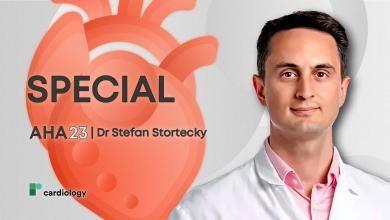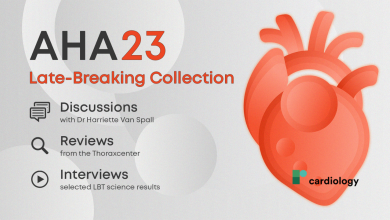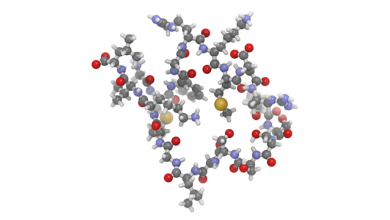Search results
Author(s):
Stefan Stortecky
Added:
5 months ago
AHA 23 — We are joined onsite by Prof Stefan Stortecky (Bern University Hospital, Bern, SE) to discuss the findings of the single centre SPECIAL trial that investigated ultrasound-assisted catheter-directed thrombolysis as compared to surgical pulmonary embolectomy for intermediate high or high risk pulmonary embolism.Questions1. What is the reasoning behind this study?2. What is the patient…
View more
Author(s):
Stephen Ralph Large
,
David Phillip Jenkins
Added:
3 years ago
There is emerging clarity in the management of pulmonary embolism (PE) as information has been collated to form guidelines addressing its diagnosis and management.1 This is appropriate as PE is common, and was observed in 18% of all autopsies in a recent Swedish study,1 with an incidence in hospital patients of 0.4%. It has a mortality rate of 7–11%,1 killing up to 10% of patients within the…
View more
Author(s):
Rainer Moosdorf
Added:
3 years ago
Pulmonary embolism is mainly caused by deep venous thrombosis in the lower extremities, mostly due to longer immobilisation and/or restricted venous backflow. Thus, most patients have a typical history; however, symptoms may be misinterpreted and therapy delayed. While smaller or fragmented thrombi in the peripheral segments of the pulmonary arteries may only cause dyspnoea and hardly any…
View more
Author(s):
Nicolas M Van Mieghem
,
Joost Daemen
Added:
5 months ago
What should you keep an eye out for at this year's AHA Scientific Sessions?Prof Nicolas Van Mieghem and Dr Joost Daemen (Thoraxcenter, Erasmus MC, NL) return with their 'View from the Thoraxcenter' preview to highlight late-breaking and featured science trials being presented at this year's AHA Scientific Sessions. Join this dynamic discussion on some of the most anticipated data releases.The…
View more
Author(s):
Alexander Fanaroff
Added:
5 months ago
Stay up-to-date with the latest data in cardiovascular science with the help of renowned experts and emerging voices who offer concise summaries, in-depth discussions, and critical reviews to keep you informed.In their regular View from the Thoraxcenter series, Prof Van Mieghem and Dr Daemen provide valuable insights into the most anticipated trials of AHA 23. With their keen awareness of…
View more
Author(s):
WY Wandy Chan
,
Richard W Troughton
Added:
3 years ago
Acute coronary syndromes (ACS) and acute pulmonary embolism (APE) are leading causes of hospital admission and mortality. Accurate risk stratification is important for both conditions to guide management and the use of therapies that lead to improved outcomes.
Acute Coronary Syndromes
Despite a steady decline in developed countries, ischaemic heart disease is still the leading cause of death…
View more
Author(s):
Johannes Mair
Added:
3 years ago
In 1981, de Bold et al.1 provided the definitive demonstration of the endocrine function of the heart by the description of atrial natriuretic peptide (ANP). This was followed by the identification of brain natriuretic peptide, or B-type natriuretic peptide (BNP), in 1988.2,3 This natriuretic peptide (NP) was originally discovered in the porcine brain, but it is synthesised, stored and released…
View more
Pulmonary Hypertension
Author(s):
Brendan P Madden
Added:
3 years ago
Article
Author(s):
Irene M Lang
Added:
1 year ago
Author(s):
Victor F Tapson
Added:
3 years ago
Chronic thromboembolic pulmonary hypertension (CTEPH) results from obstruction of the major pulmonary arteries by unresolved or organized pulmonary emboli that have become incorporated into the vessel wall, ultimately causing increased pulmonary vascular resistances. Without intervention, CTEPH is a progressive, fatal disease for which there is no proven effective medical therapy. Pulmonary…
View more














